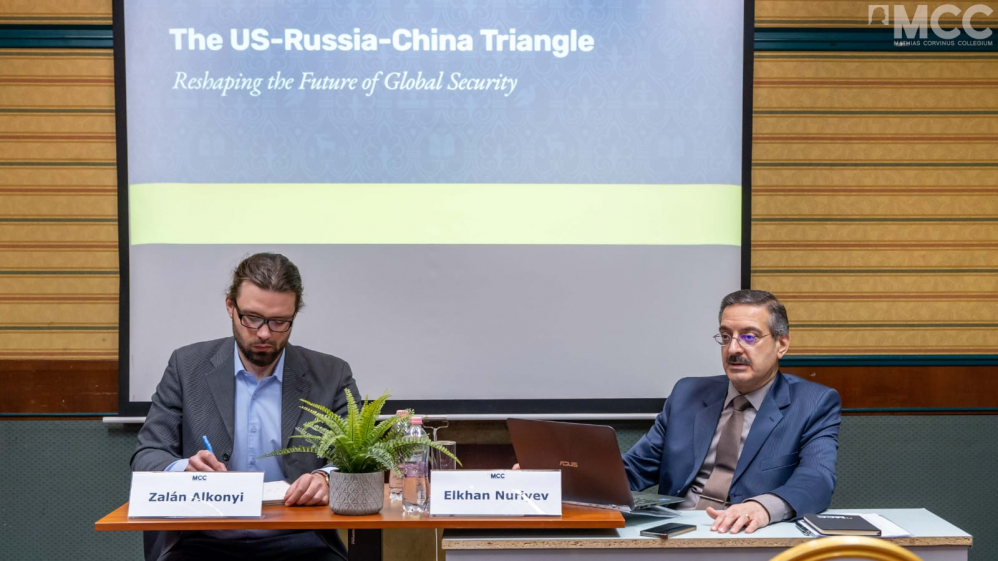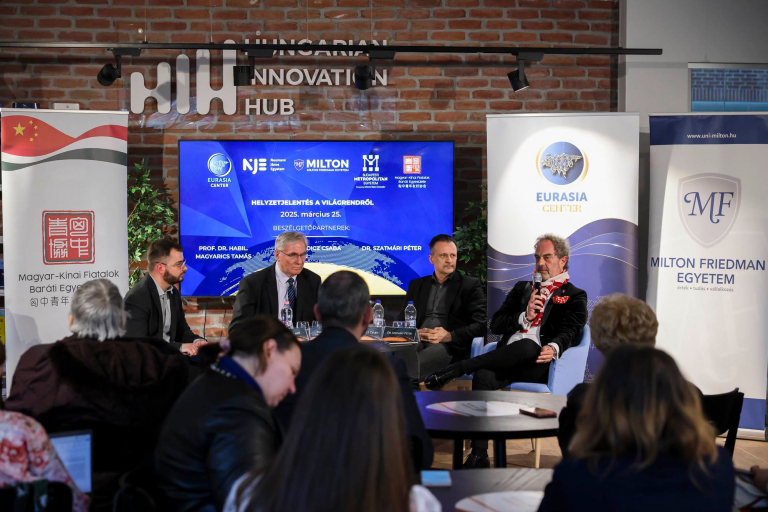On March 17, MCC’s Center for International Economy hosted an expert talk titled “The US-Russia-China Triangle: Reshaping the Future of Global Security,” delivered by Dr. Elkhan Nuriyev, Senior Fellow with the Alexander von Humboldt Foundation.
Dr. Nuriyev offered a thoughtful and penetrating analysis of the evolving triangular dynamic between the United States, Russia, and China — not merely as a set of bilateral relationships, but as a structural force reshaping the global security architecture. His presentation explored the nature of strategic disequilibrium in today’s multipolar world, the asymmetric interactions among the great powers, and the broader implications for international order and stability.
Key Takeaways:
Strategic Disequilibrium — We are entering an era of complex multipolarity, marked not by symmetry but by competing visions of order, legitimacy, and governance.
Asymmetrical Triangle — The US remains preeminent, yet faces challenges from a revisionist Russia and a systemic challenger in China, each reshaping the global order through divergent strategies.
Fluid and Unstable Dynamics — The triangular relationship is dynamic and prone to shock. Cooperation and confrontation coexist — often uneasily — creating heightened risks of miscalculation.
Arenas of Contestation — From Ukraine and Taiwan to nuclear deterrence, digital domains, and economic bifurcation, great power rivalry is unfolding across multiple interconnected theatres.
Futures at a Crossroads — Scenarios range from managed rivalry to escalatory breakdown. The most plausible trajectory points toward a hybrid of competitive coexistence and fragmented multipolarity.
Implications for Global Order — The convergence of strategic crowding, institutional decay, and the weakening of hegemonic stability significantly erode the foundations of coordinated crisis management, raising profound questions about the viability of global governance in an increasingly multipolar world.
The discussion concluded with a call for strategic foresight, scenario thinking, and sober realism in an era where the risk of systemic rupture is rising — but where thoughtful engagement can still mitigate catastrophe.


